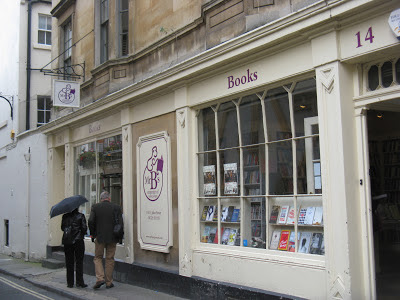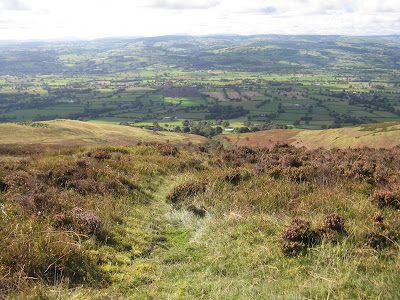I picked up a copy of Maurice Dekobra's The Madonna of the Sleeping Cars, translated by Neal Wainwright at Daunts Books, one of my favourite bookstores in London. It's part of Melville House's terrific Neversink Library - another series of rediscovered classics and translated literature that I'm gradually making my way through (I've already reviewed The Train and The President by Georges Simenon and After Midnight by Irmgard Keun - all fantastic reads). This novel, originally published in 1927, bills itself as one of "the biggest bestsellers of all time, and one of the first and most influential spy novels of the twentieth century". I enjoyed this book very much but not necessarily for the blurb description which drew me to it in the first place. A "delightful romp" it certainly is, but not so much about spying as it is about, well, quite simply sex, though not at all of a gratuitous or pornographic nature. The plot is a bit flimsy; our hero, Prince Gerard Séliman, secretary to the beautiful and sexy Lady Diana Wynham, the "madonna" of the title, sets off to Russia to ensure the financial validity of some oil wells left to Diana by her late husband and her last chance to escape financial ruin. In order to get the Russian communist government to allow foreign investment, Diana has had to seduce Varichkine, the Soviet representative in Berlin, who wants her to become his wife in return for his influence. Looming large is the indomitable Irina Mouravieff, high up in the Soviet command and Varichkine's mistress who is out for revenge (she would be perfect as a Bond villian) who is following Gerard's every move with potentially deadly results. What dominates this novel though, are the strong women surrounding Gerard (including Klara, a German spy, and his estranged wife Griselda who suspects him of a dalliance with her stepdaughter), who matter-of-factly use their sexual attraction very strategically to the bemusement and barely concealed delight of Gerard. The atmosphere including risque German nightclubs and even a Russian prison, is also conducive to sexual politics where the naked body (or humiliation of it) becomes a tool for both political and social power. Even Lady Diana shocks society by doing a striptease, ostensibly for charity, but with her own ulterior motives. It all provides quite the frisson to the backdrop of what is basically an adventure story with some dazzling (and very witty) dialogue and some very unusual and liberating depictions of the "New Woman" of the 1920s. My one disappointment - there wasn't as much action on the trains as the title might have suggested, but I still enjoyed the journey.
It still shocks me that despite the fact that many of Michael Innes' books are still in print (published by the admirable House of Stratus), you'd be hard pressed to find any titles in a bookstore - independent or chain - or more than one or two in a library, and trust me, I've been looking. I think he's one of Britain's best mystery writers and his books never fail to entertain with their wit and cynicism. Appleby and the Ospreys is one of his later works, written in 1986, but with its small village setting embedded with inevitable class consciousness, the reader could be excused for thinking they've stumbled on a classic crime novel from the 1930s or 40s. Sir John Appleby has officially retired but still likes to "run into mysteries accidentally on purpose." And like most series sleuths, people readily comply by ending up dead in his vicinity. In this case, the victim is Lord Osprey, owner of a valuable collection of coins, whose dead body is found shortly after the Applebys have visited his mansion. This is a fun take (spoof would be too undignified), on the typical English country house murder with all of the usual elements at play: a body found in the library, a group of house guests, many with a suitable motive, who are uncannily calm about events, red herrings and of course, the all-knowing and all-seeing butler. I just never get tired of reading Innes and readily scour used bookstores for old Penguin editions of his books.
Georges Simenon's Inspector Maigret novels are another guilty pleasure, but I also enjoy his psychological romans dur and have several taunting me on my NYRB Classics bookshelf. Sadly, despite its tantalising title, I found Act of Passion, translated by Louise Varèse rather dispiriting. The novel is told in the form of a letter written by convicted killer Charles Alavoine to his examining magistrate. It begins: "I should like one man, just one, to understand me. And I would like that man to be you." What follows is the story of his life and the events leading up to his crime. Alavoine is similar to many of Simenon's characters - a loner, bored with his bourgeois respectable life and an unfulfilling marriage, and seeking to escape his own inadequacies with darker adventures mostly of a sexual nature. But unlike say, Marcel in the aforementioned The Train, whose bid for personal freedom has far greater moral, historical and dangerous implications, Alavoine's indifferent egotism quickly gets annoying and the "love" that motivates his crime never entirely convinces. I have no problems with a thoroughly unlikeable protagonist but this one quickly bored me. It won't stop me though from eventually making my way through all the NYRB Classic Simenons; he's such a good writer that I can easily excuse a lesser offering.






































